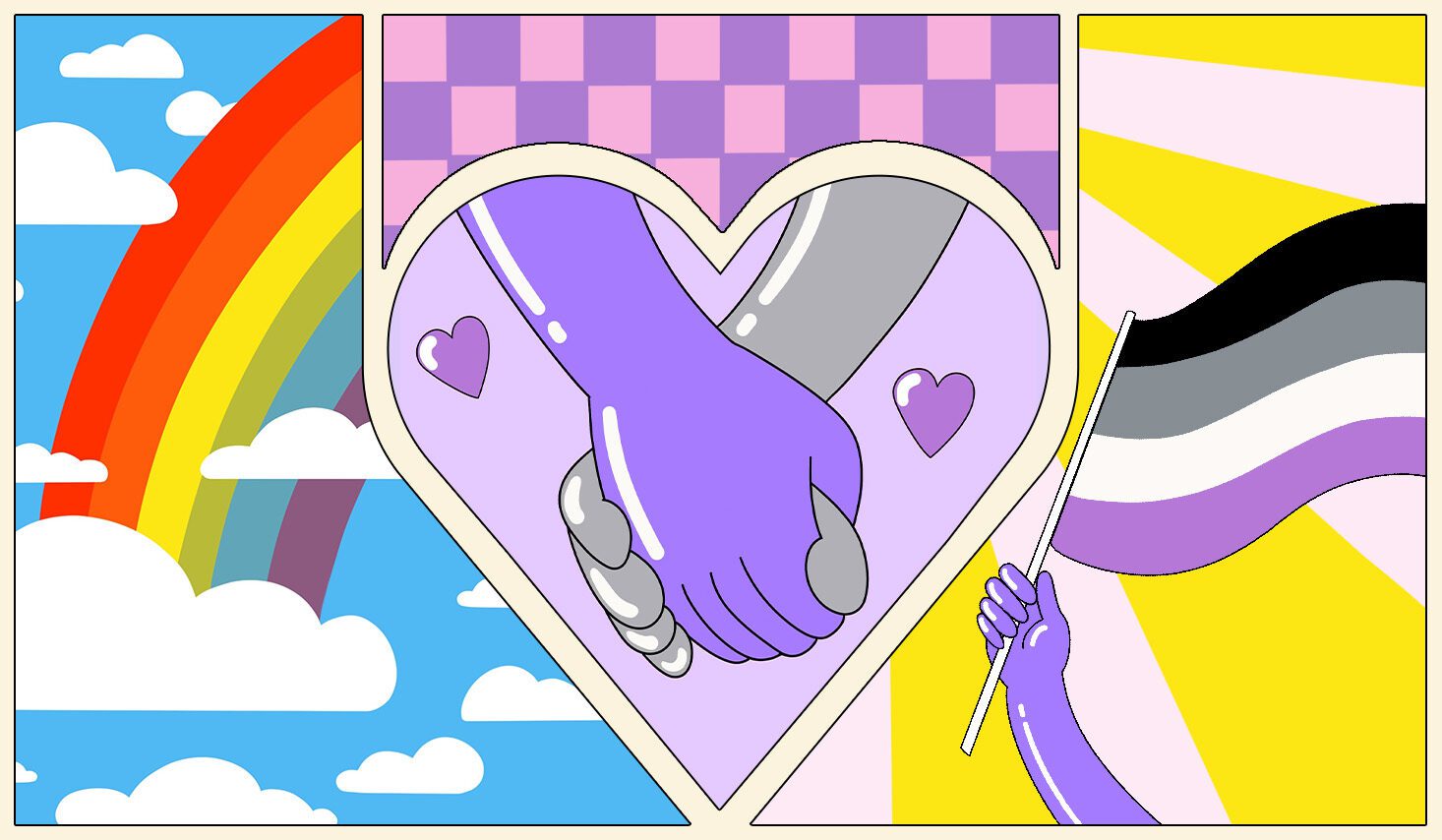
Taking place on April 6, International Asexuality Day provides a time to honour people around the world who fall under the ace (a shortened term for asexual) umbrella, including those who identify as demisexual, grey ace, and other ace-specific identities.
Founded in 2021, International Asexuality Day was formed by a global coalition of different individuals and organisations. It is built around four main themes: advocacy, celebration, education, and solidarity. This day joins Ace Week in October as an opportunity to build visibility and awareness for ace people, whose experiences and intersecting identities can sometimes get erased or sidelined when highlighting the lives of the LGBTQIA+ community.
International Asexuality Day offers a dedicated time to centre and lift up ace people so they can live authentically and with happiness. A key part of this is ensuring that people who fall under the ace umbrella have space to explore their identities. It’s why GAY TIMES and Hinge have partnered with AroAce educator, content creator, and social worker Zoe Stoller (they/she/he) to provide insight and advice for a Not-so Frequently Asked Question (NFAQ) around dating and relationships for ace people.
There are many intersections and differences when it comes to people under the ace umbrella, which can lead to asexual people sometimes facing misconceptions or a lack of understanding around their identities. For example, one question that arose from the community was: does being asexual equal being celibate?
One important thing to remember is that asexuality is a spectrum. “This means that there’s no one right experience, or one right way, to be asexual,” explains Zoe. “There are some asexual people who are celibate and don’t enjoy sex in any capacity. But there are many asexual people who do.”
@gaytimes“Does being asexual equal being celibate?” 🤔 GAY TIMES and Hinge asked Zoe, an asexual creator, about their asexual experience for this latest Not-so Frequently Asked Question 💜
As Moe Ari Brown, Hinge’s Love and Connection Expert and licensed marriage and family therapist, notes, the choice to engage in sex or not is independent of one’s sexual orientation. “Romantic and sexual attraction are two distinctly different ways of experiencing attraction, and for asexual people, the distinction is an important one,” Moe adds. “Many asexual people experience romantic attraction and prioritise romantic connections when dating.”
When it comes to their own experiences with asexuality, Zoe says that there have been times in their life when her comfort and desire for sexual intimacy have fluctuated. “This means that there are periods where I have engaged in sexual relationships and periods where I haven’t,” they add. What’s crucial to remember is that how you choose to live your life does not negate your identity.
“Regardless of my levels of attraction, desire and my ultimate action, or lack thereof, I am still asexual and completely valid in my identity,” says Zoe. “The same goes for every other experience.”
Given that the foundations of International Asexuality Day are education, advocacy and solidarity, it’s essential that all ace people have the support and space that they need in order to celebrate their lives. If you have a Not-so Frequently Asked Question around self-discovery and creating a meaningful connection, leave it as a comment in the TikTok for Zoe.
80% of LGBTQIA+ daters on Hinge have struggled to find answers to their questions about relationships, self-discovery, gender, and sexuality. See what other inspiring voices like Zoe have had to say at hinge.nfaq.co and submit your own.